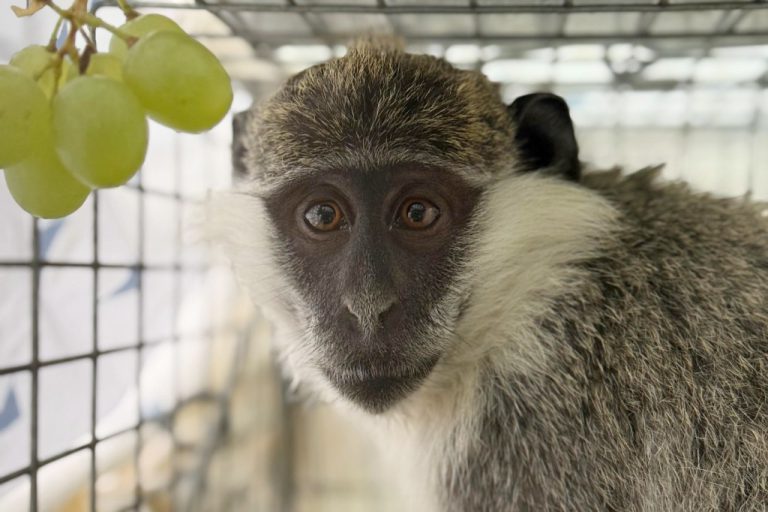Jerusalem, 29 July, 2025 (TPS-IL) — A green monkey was captured Tuesday morning in the central Israeli city of Ramla, bringing the total number of monkeys caught in the country since March to 54, according to the Israel Nature and Parks Authority. An Israeli crackdown on animal trafficking has led to the rescue of monkeys, lion cubs, tortoises, hyenas, gazelles, exotic birds and more in 2025.
The monkey was found inside a cement factory by staff from the city’s veterinary service after a weeks-long search. Dr. Revital Orbach, director of the municipal veterinary service, said her team had received a call several weeks ago about a monkey seen near a main road, but initial efforts to locate it were unsuccessful.
“After a while, we received a call from the Nesher factory, who said that the monkey had arrived at their location,” Orbach said. “The veterinary service employees went to the scene and discovered that the monkey was on very high posts in the factory and that it was very difficult to reach it. In order not to endanger it, several traps were left, and this morning it was finally caught.”
The monkey was transferred to the Israeli monkey shelter for further tests and treatment.
The Nature and Parks Authority said the green monkeys — non-native to Israel — are believed to have been released by private individuals who kept them illegally and then let them go when the responsibilities became too much.
“Many keepers probably realized how complex it is to keep a monkey at home, and simply released them into the wild,” said Uri Laniel, head of the captive wildlife department at the authority. “Monkeys are sensitive, intelligent creatures that seek out their own kind. Imagine being thrown into a nature that is not yours, without any similar creature by your side – this is terrible abuse.”
Authorities emphasize that keeping protected wildlife, such as monkeys, is illegal and poses serious risks to the animals’ well-being. Many monkeys end up abandoned or neglected when owners can no longer handle them. They also called on anyone near wild animals in an unprotected manner to be tested for diseases that can pass from animals to humans, such as rabies and tuberculosis.































